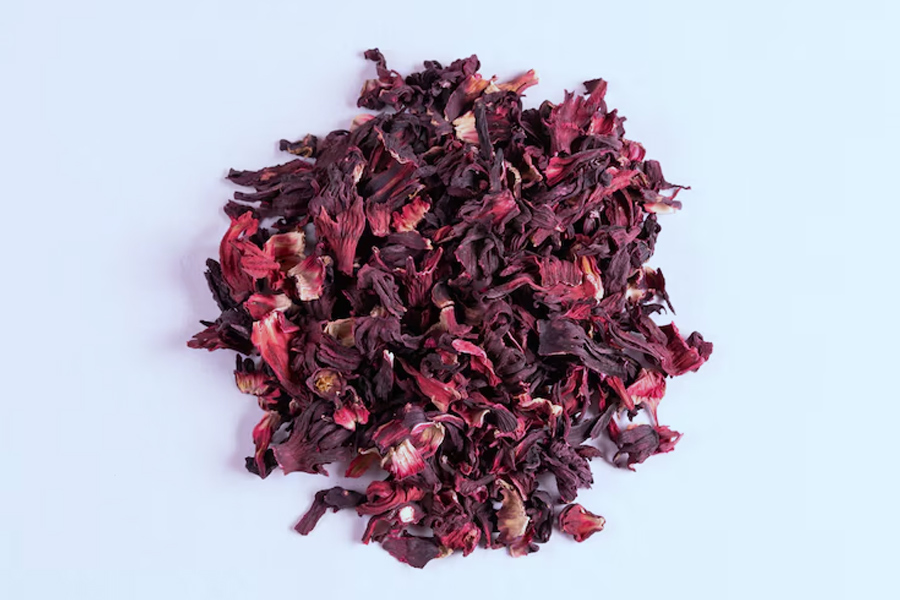
As the temperatures are dipping, cases of seasonal cold, flu and cough are increasing. While seasonal colds and flu are common, the recent HMPV (Human Metapneumovirus) has doubled the concerns regarding respiratory infections. As a result, managing these common ailments has become more crucial than ever.
Table of Content:-
Over-the-counter medications are available in the market and they may offer temporary relief, traditional remedies like hibiscus leaves have gained attention for their natural healing properties. Rich in antioxidants, vitamins, and antimicrobial compounds, hibiscus leaves are a powerful ally in fortifying the immune system and alleviating respiratory symptoms.
Nutritional Profile of Hibiscus Leaves
Hibiscus leaves are rich in vital nutrients, including vitamin C, flavonoids, and anthocyanins. These compounds provide antioxidant, anti-inflammatory, and antiviral properties, which play a significant role in preventing and managing seasonal illnesses. Vitamin C, in particular, enhances the immune system, enabling the body to fight off infections more effectively.

Antioxidant Properties
One of the key benefits of hibiscus leaves lies in their high concentration of antioxidants. A study published in the Journal of Ayurvedic and Herbal Medicine highlighted that hibiscus leaves contain phenolic compounds that combat oxidative stress, a condition that can weaken the immune system. By neutralising free radicals, these antioxidants support the body's ability to fend off infections such as the common cold and flu.
Also read: Hibiscus Tea: How To Make It, Know It's Health Benefits
Anti-Inflammatory and Antiviral Benefits
Inflammation of the respiratory tract is a hallmark of conditions like colds and coughs. Hibiscus leaves contain anti-inflammatory agents that can reduce swelling and soothe irritated mucous membranes. According to a study extracts from hibiscus leaves demonstrated antiviral activity against respiratory viruses, including certain strains of influenza.
How Hibiscus Leaves Aid Respiratory Health

Hibiscus leaves are particularly effective in alleviating symptoms such as nasal congestion, sore throat, and persistent cough. When prepared as a tea or decoction, hibiscus leaves release bioactive compounds that help:
- Loosen Mucus: WebMd says, hibiscus acts as a natural expectorant, making it easier to expel mucus and clear airways.
- Reduce Throat Irritation: The soothing properties of hibiscus can alleviate soreness and irritation in the throat, providing relief from coughing.
- Relieve Nasal Congestion: The aromatic compounds in hibiscus leaves can help open up blocked nasal passages, improving breathing.
Hibiscus and Immune Boosting
Strengthening immunity is crucial during flu season, and hibiscus leaves excel in this area. A study published in the Frontiers of Immunology, found that hibiscus leaf extracts significantly enhanced immune responses in test subjects. Regular consumption of hibiscus tea was shown to increase the production of white blood cells, which are vital for combating infections.
Also read: Hibiscus Oil For Hair: Benefits Of Hibiscus Oil And How To Make It At Home
How to Use Hibiscus Leaves for Cold, Cough, and Flu
Incorporating hibiscus leaves into your routine is simple. Here are a few effective methods:

Hibiscus Tea:
- Boil a handful of fresh hibiscus leaves in water for 10–15 minutes.
- Strain the liquid and add honey or lemon for added benefits.
- Sip the tea 2–3 times a day to relieve symptoms.
Hibiscus Steam Inhalation:
- Add hibiscus leaves to boiling water and inhale the steam.
- This helps clear nasal congestion and soothes inflamed airways.
Hibiscus Poultice:
- Grind fresh hibiscus leaves into a paste and apply it to the chest.
- This can provide relief from chest congestion and ease breathing.
Safety and Precautions
While hibiscus leaves are generally safe for consumption, some individuals may experience allergic reactions or mild side effects such as dizziness or a drop in blood pressure. It is advisable to consult a healthcare professional before using hibiscus leaves, especially if you are pregnant, breastfeeding, or taking medication.
Conclusion
Hibiscus leaves are a natural, effective remedy for fighting seasonal colds, coughs, and flu. Their antioxidant, anti-inflammatory, and immune-boosting properties make them a valuable addition to your wellness routine. Backed by scientific studies, hibiscus leaves not only alleviate symptoms but also strengthen your body’s defences against future illnesses. With their easy availability and versatility, these leaves can be a reliable, herbal alternative to combat seasonal health woes.
Also watch this video
How we keep this article up to date:
We work with experts and keep a close eye on the latest in health and wellness. Whenever there is a new research or helpful information, we update our articles with accurate and useful advice.
Current Version